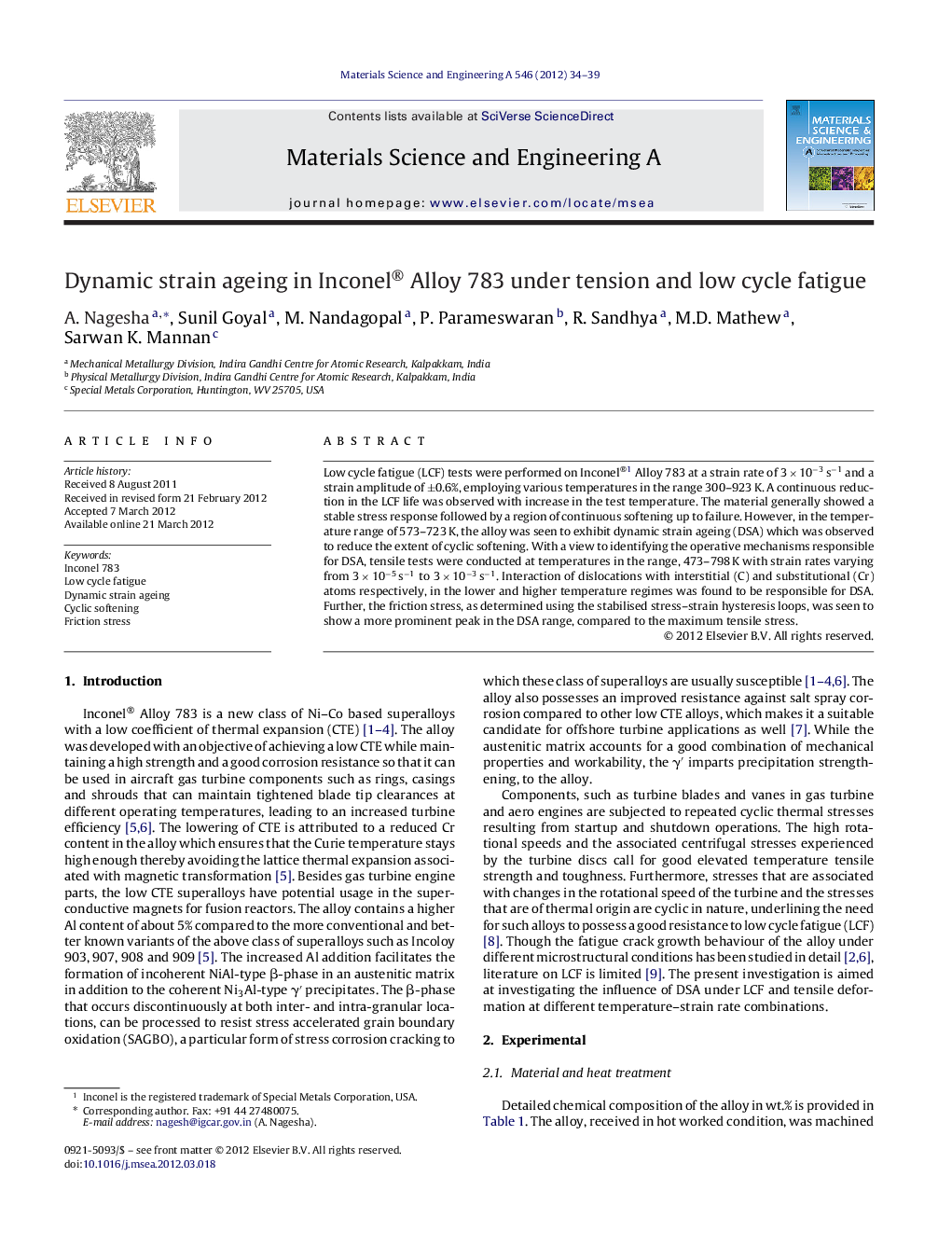| Article ID | Journal | Published Year | Pages | File Type |
|---|---|---|---|---|
| 1577267 | Materials Science and Engineering: A | 2012 | 6 Pages |
Low cycle fatigue (LCF) tests were performed on Inconel®1 Alloy 783 at a strain rate of 3 × 10−3 s−1 and a strain amplitude of ±0.6%, employing various temperatures in the range 300–923 K. A continuous reduction in the LCF life was observed with increase in the test temperature. The material generally showed a stable stress response followed by a region of continuous softening up to failure. However, in the temperature range of 573–723 K, the alloy was seen to exhibit dynamic strain ageing (DSA) which was observed to reduce the extent of cyclic softening. With a view to identifying the operative mechanisms responsible for DSA, tensile tests were conducted at temperatures in the range, 473–798 K with strain rates varying from 3 × 10−5 s−1 to 3 × 10−3 s−1. Interaction of dislocations with interstitial (C) and substitutional (Cr) atoms respectively, in the lower and higher temperature regimes was found to be responsible for DSA. Further, the friction stress, as determined using the stabilised stress–strain hysteresis loops, was seen to show a more prominent peak in the DSA range, compared to the maximum tensile stress.
► Low cycle fatigue (LCF) and tensile tests were performed on Inconel® Alloy 783. ► A stable cyclic stress response followed by continuous softening was noted under LCF. ► Material exhibited DSA in the temperature range, 573–723 K. ► Occurrence of DSA reduced the extent of cycling softening in LCF. ► Both interstitial and substitutional atoms were found to be responsible for DSA.
